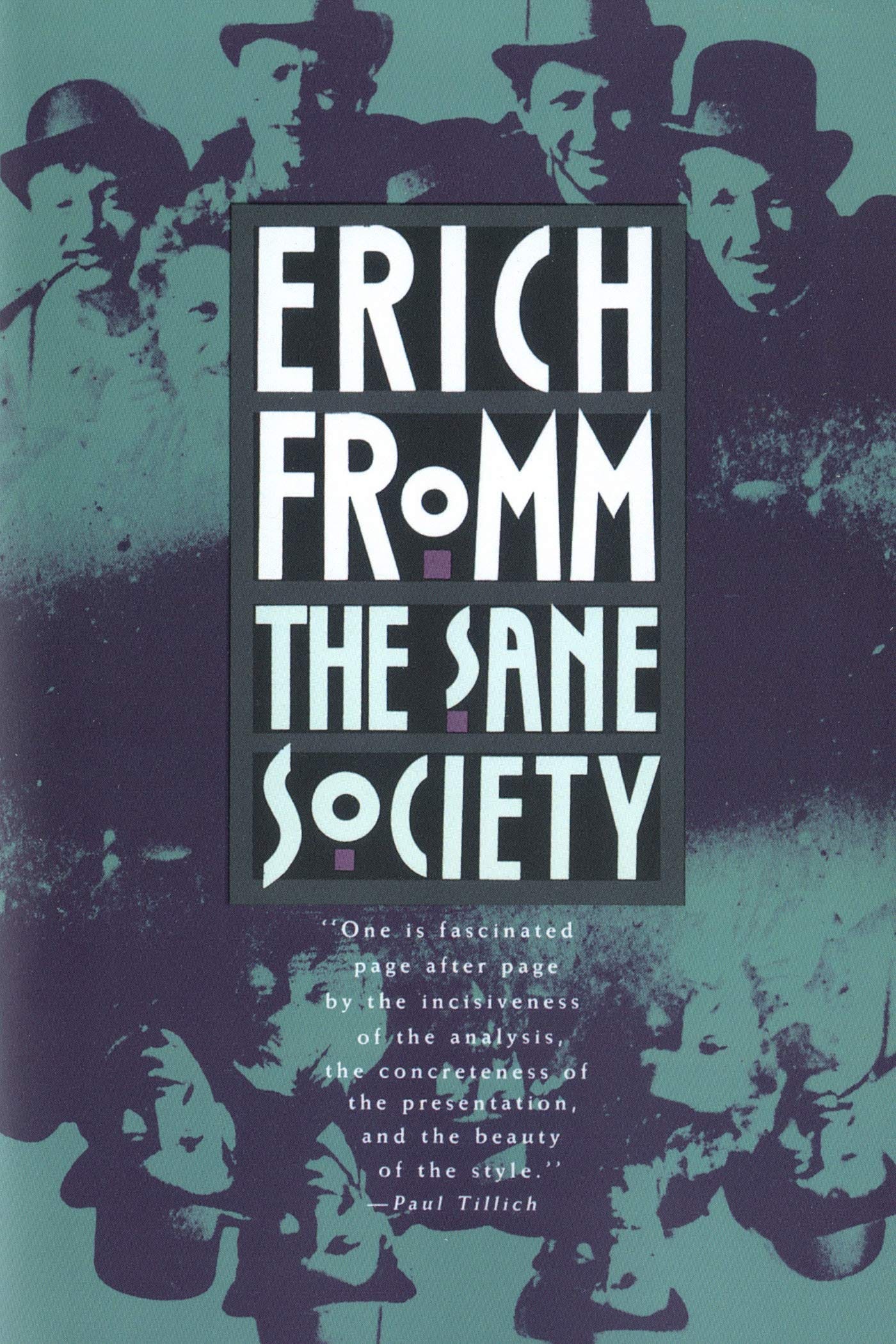If enough people share a disorder, it stops being diagnosed — it becomes culture
One of the more unsettling aspects of Severance is the sheer normalcy with which Lumon employees accept their machine-like existence. Their existence — robotic, hollow, lifeless — ought to provoke immediate rebellion. And yet, with the exception of Helly, none of them react as one might expect to their lobotomized lives.
They rationalize their existence. What should be absolutely intolerable is instead endured, accepted, even internalized as right and natural.
The world of Lumon mirrors our own. Those subjected to years of wage work grow acclimated to their dehumanization.
Erich Fromm diagnosed this pathology with astonishing clarity in The Sane Society:
“Today… we come across a person who acts and feels like an automaton; who never experiences anything which is really his; who experiences himself entirely as the person he thinks he is supposed to be; whose artificial smile has replaced genuine laughter; whose meaningless chatter has replaced communicative speech; whose dulled despair has taken the place of genuine pain…”
In isolation, we'd all look at such a person as dead inside, but because millions of people share his deadness, culturally we call him normal.
Such a person is severely defective — creatively, intellectually and spiritually. But since he shares this defect with many others, he ceases to be aware of it as a defect. Fromm concludes:
“What he may have lost in richness and in a genuine feeling of happiness, is made up by the security of fitting in with the rest of mankind… As a matter of fact, his very defect may have been raised to a virtue by his culture, and thus may give him an enhanced feeling of achievement.”
If enough people share a disorder, it stops being diagnosed — it becomes culture.
Most of Us Live Severed Lives
One of the most striking realizations Severance forces upon its audience is that the severed state isn’t some far-fetched sci-fi horror — it's already our reality. Most of us have been severed for years.
To succeed in almost any career, you have to sever what is human in favor of what is functional.
The professional world doesn't accommodate wholeness, it demands fragmentation. Just as a student leaves their personal belongings in a locker before going to class, the wage worker must put into storage essential aspects of their humanity before stepping into the office — their creativity, their curiosity, their autonomy.
Severance exposes our self-imposed fragmentation with unsettling clarity. It forces us to consider:
How much of my real self do I suppress when I enter the work world?
How has prolonged exposure to my “work self” eroded the integrity of my real self?
How much longer do I want to live a divided life?
The drive for wholeness, the irrepressible desire to live as an undivided being, is fundamental to human nature. It's not something that can be extinguished. At best, it can be pacified — numbed by busyness, dulled by rationalization — but it's always there, gnawing beneath the surface. When confronted with this realization, people react in two ways:
Try to find the perfect work-life balance
Frustrated by the impossibility of balancing two selves, one surrenders entirely to a career or to a passion.
Both paths are incredibly difficult to achieve and maintain. The modern world does not easily permit an undivided life.
Corporate Stockholm Syndrome
The final point I want to make concerns Lumon’s corporate propaganda and the insidious function it serves.
Lumon propaganda is simply the office ideology of the real world, stripped of its subtlety. The same psychological mechanisms that sustain Lumon’s workforce operate in modern corporate environments. These mechanisms serve three key functions.
1. Work as a total identity
A more subtle function of Lumon’s ideology is that it seeks to monopolize meaning itself. The company creates a reality in which all sources of joy, recognition, success, and self-worth flow through it. In doing so, it makes the prospect of leaving incredibly difficult and painful.
This is an extreme but accurate parody of how late capitalism operates. In many high-powered jobs, work is not just a means to a paycheck — it becomes a total identity. Status and self-worth are tied to job titles. Social life is structured around coworkers. Progress in life is dictated by performance reviews and promotions. To leave is not simply to change jobs — it is to sever oneself from an entire ecosystem of meaning.
2. Creating a self-reinforcing belief system
Lumon’s corporate language and its pseudo-religious mythology are all tools designed to shape how employees interpret their reality. In the corporate world, coercion is laundered into personal growth through vague and euphemistic phrases: team synergy, passion for the mission, company values.
These phrases suggest that working harder, sacrificing more and tolerating dysfunction are not acts of self-abandonment but of self-improvement.
This mirrors the real-world corporate tactic of fostering “family” culture in the workplace. Employees are encouraged to see their employer as a benevolent, nurturing force. Corporations want employees to internalize a sense of belonging in order to make their work feel natural, even righteous.
3. Masking the inhumanity of work
The absurd rituals of Lumon — the “waffle parties,” the company song, the cheap rewards — are not meaningless accidents. They exist to soften the brutal reality of what the employees are actually doing: meaningless, repetitive labor in a dehumanized environment. These rituals provide a thin veneer of sentimentality, allowing workers to attach emotional value to an otherwise empty routine.
Corporate cultures try to pacify employees with perks and incentives, when the reality is that most employees are being drained, maximized for their utility and discarded when no longer profitable.







On the topic of corporate Stockholm syndrome is-at least in America-the tying of health insurance to employment. That only changed in the last decade, and even still the ‘benefits’ offered by jobs aren’t perks as much as they are necessities - ones that the government has delegated to private companies.
This is, I think, one of the most barbaric practices we have: that your ability to protect your health hinges upon your commitment to be a corporate laborer.
I’m a huge fan of the show, and I remember watching season one thinking it was just a sharp parody of corporate America. But then, after those first few episodes, when Helly makes that choice (no spoilers), the tone completely shifts. That’s when it hit me, this isn’t just about office culture, it’s about something much deeper, it really gets to deep issues of identity, autonomy, ethics and more. Loved your take on this.